Just when I start giving serious thought to switching from Ban to a “natural deodorant” comes word I should pitch every stinkin’ beauty product in my bathroom.
Oy.
That word comes from Beautycounter, the “safe” products line that just paid the Main Line its first official visit.
About 80 local lovelies showed up at Radnor’s Avenue Kitchen the other night for a taste of Beautycounter culture.
Not a bad crowd but nothing approaching the 300+ that regularly turn out for Beautycounter’s celebrity-strewn NYC events.
I’ve never been big on shopping via “consultants” and sky-is-falling health pronouncements, so I strolled a tad warily into Avenue K.
And I wandered out … dazed and confused.
See, these fools/geniuses have the gall/guts to put retinol on their “Never List” of 1,500 dangerous ingredients! Retinol, as in the non-prescription form of Retin-A (the synthetic form of Vitamin A), which happens to be The Best No-Needle Wrinkle Fighter There Is – just ask your dermatologist.
I’ve been slathering my face in multi-syllabic no-no’s like Retin A for years.
But that’s not all. My body’s in big trouble, too.
Jergens Natural Glow Daily Moisturizer – my annual ticket to a gradual, passable and cheap fake tan – contains at least five bad guys, mineral oil among them. Parabens, and BHT I get, but mineral oil? Jeeze.
BC does sell a bronzer but skips sunless tanners altogether. (An omission that might tempt some to get all sunful and wicked, thereby inviting skin cancer, wrinkles and other nasties, no?)
Another villain: my trusty Coppertone Broad Spectrum UVA/UVB Sport Lotion SPF 50.
Coppertone calls it “equipment for your skin.” Beautycounter calls it a “hormone disrupter” that “triggers allergic skin reactions” because it’s loaded with oxybenzone. (At least it doesn’t contain retinol – which, in a daytime cream or sunscreen, apparently makes your skin MORE prone to sun damage. Other studies suggest retinol use (at night) prevents skin cancer. See how confusing this stuff is?)
BC does make a SPF 30 sunscreen, formulated with “non-nano” zinc oxide.
The company’s National Sales Director appealed to would-be consultants and customers in the audience to “make a difference in your life – and the lives of those who matter most to you.”
And truly, the stats she shared were scary:
* The European Union has banned nearly 1,400 ingredients in the personal care industry; the U.S. has restricted exactly 11. (We haven’t passed a law regulating ingredients in the personal care industry since 1938.)
*50 years ago, one in 20 U.S. women got breast cancer. Today, it’s 1 in 8 (and only 10 percent have the gene culprit).
*Half of men and a third of women will be diagnosed with cancer in their lifetimes. Childhood cancers have increased 20% since 1975.
*One third of U.S. babies are born with one of the four As: autism, allergies, ADHD or asthma.
*Each morning, “the average woman uses 12 beauty products, which adds up to hundreds of chemicals every single day.”
A born skeptic, here’s the question I asked the sales director: Isn’t the skin’s job to protect our vital organs? I get that our constantly exfoliated (read: shaved) pits and legs might be more vulnerable, but how much stuff really gets through the epidermis and dermis?
Her answer: “We believe the effects are cumulative.”
Point well taken. I shell out big bucks for my “medical-grade” face products; obviously, I believe something’s seeping in.
And so I say “bravo” to Beautycounter for empowering women with information and for setting a higher bar for safety and performance in the personal care and cosmetics industries.
I’m just not certain I’m going to clear out my toiletry drawer.
My hesitation might be generational. I would certainly advise my 24 year old to check out Beautycounter.
And clearly, the youngish Main Line crowd at Avenue Kitchen seemed to buy into BC. Which makes sense: they’ve got plenty of time to let everything sink in (literally) and to “make a difference” with wee ones.
Those of us with a shorter shelf life and grown kids, facing our mirrors each morning, may need a little more convincing.

My encounter with Beautycounter: from left, National Sales Director Gina Murphy, Bryn Mawr BC consultant Kerry Lenehan and Amy Cooley. BC hits home for Murphy: her son has asthma and she lost her father to cancer.
ABOUT BEAUTYCOUNTER: Beautycounter is sold online and through consultants and “socials.” Prices are comparable to mid-to-upper range Sephora brands. BC donates $10 from each $25 annual “Band of Beauty” membership fee to three “trusted non-profits”: Environmental Working Group, The Breast Cancer Fund and Healthy Child. A special SAVVY thank you to Bryn Mawr BC consultant Kerry Lenehan for the lovely product samples. Click here to visit Kerry’s website.
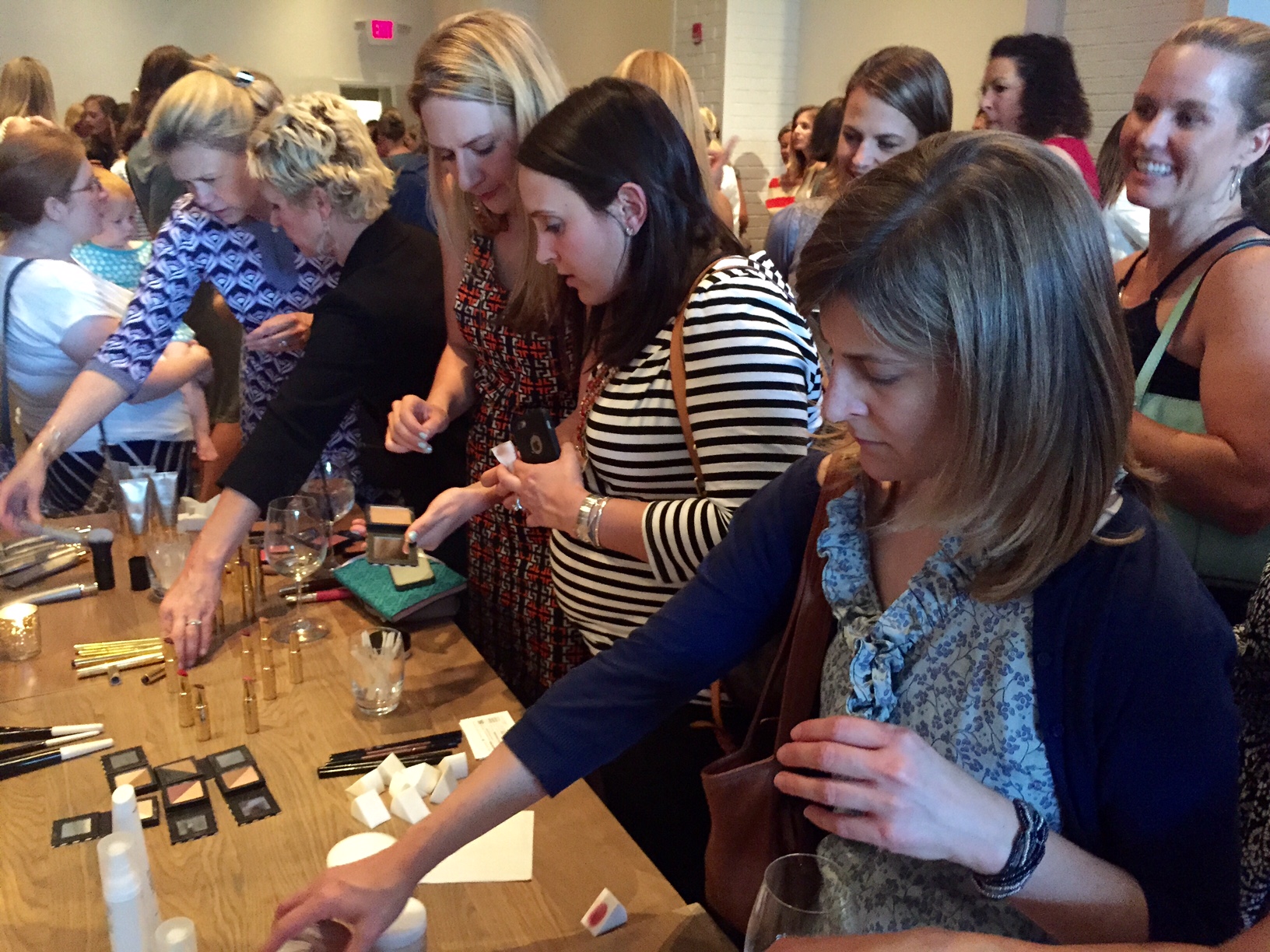
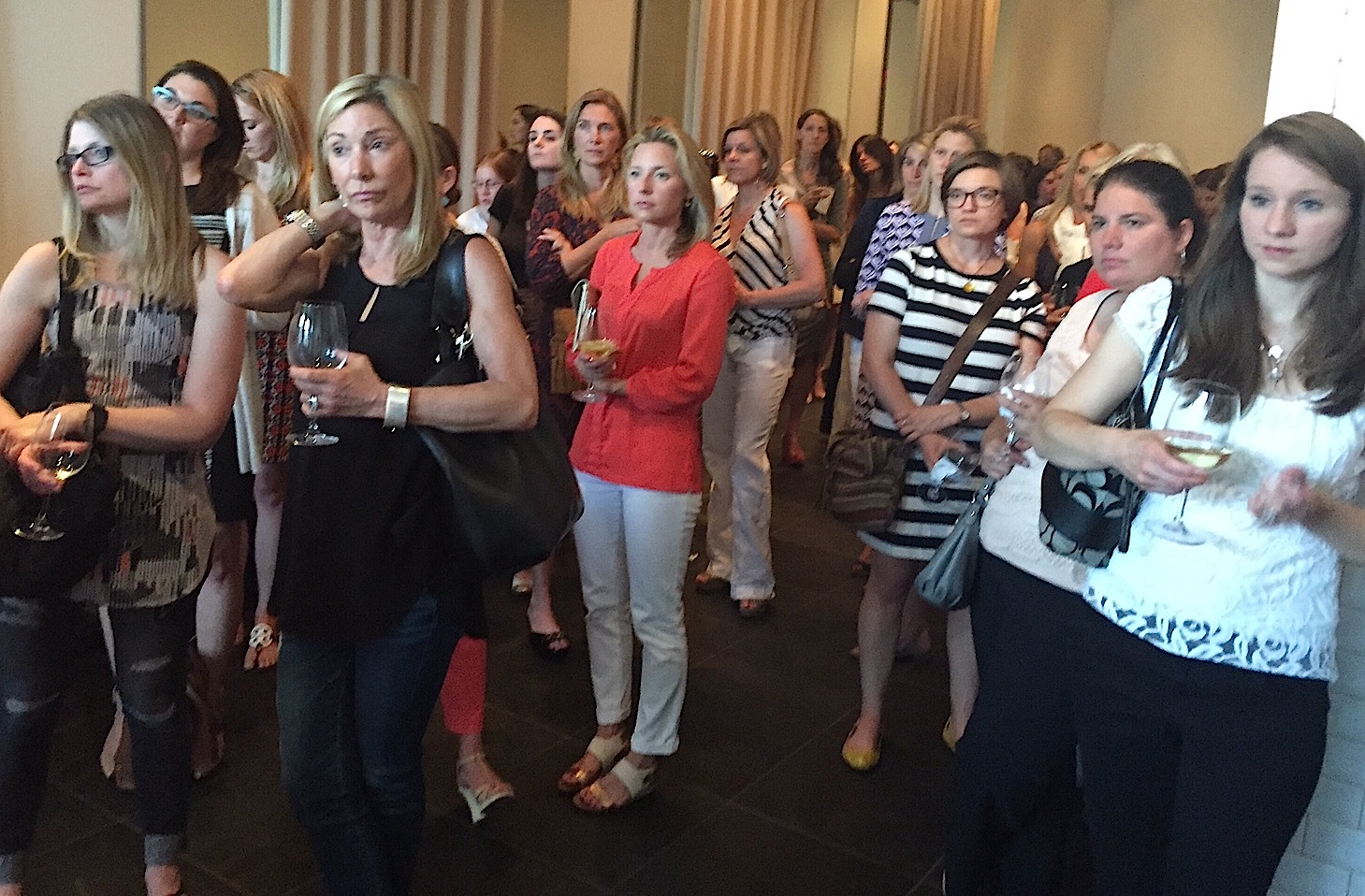
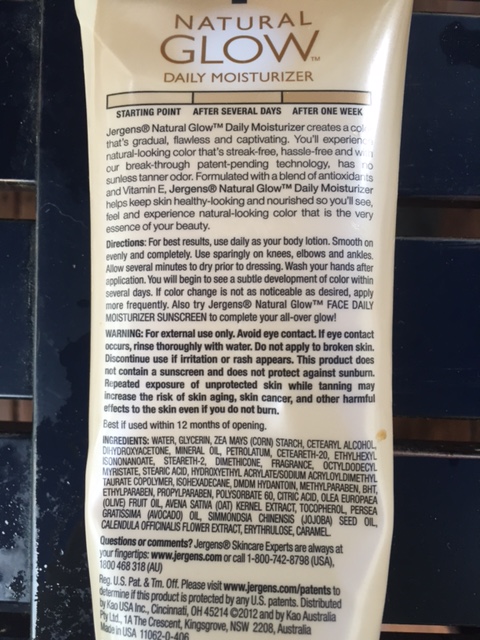
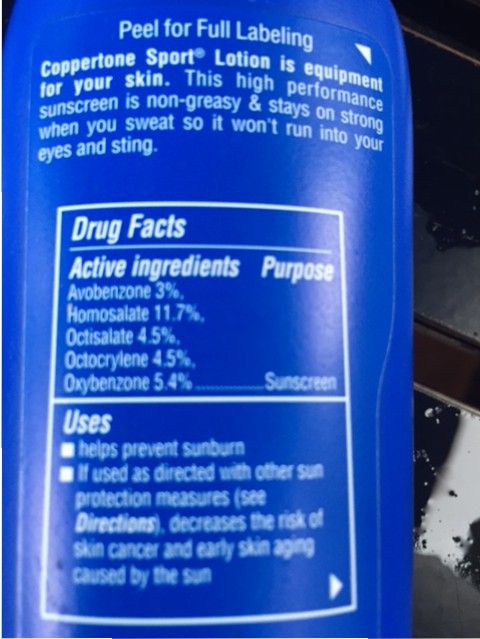
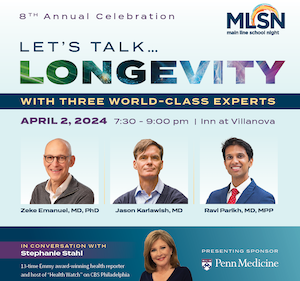
Shorter shelf life? You look YOUNGER than those twenty somethings posing with you Caroline. I’d say your products are working. Please share those secrets in a future post. Very interesting and good information to consider.
Yes, I will happily share my lotions and potions and sundry beauty advice in future posts, Johanne. Nice to know you think they’re working 🙂 Beautycounter does get you thinking though, n’est-ce pas?
Caroline – great topic!! The points you brought up are spot on! The cosmetic world has indeed become quite complicated. There are so many marketing pitches, and information for consumers to sort through!
I am constantly analyzing conflicting messages out there. For the most part, I do believe fewer chemicals are better when we are talking about products. However, there are times that we need the chemicals to preserve certain products. For instance, I like a physical sunscreen with titanium dioxide or micronized zinc on a daily basis. But, if I am going to be on a boat, in and out of the water all day, I know that I will need a waterproof sunscreen that contains some chemicals to make sure I have sustained protection while in the water. I am not willing to give up the water, and I am unwilling to burn, so in this case I will use a product with a chemical, so I pick and choose accordingly with products. Regarding parabens (a preservative that keeps nasty things like bacteria away), I tell patients it’s best not to have them, however if a product does contain these substances, it’s better that they are at the end of the ingredient list on the back of the product. This way there are only small traces of the paraben.
As for Retin-A … I am a HUGE fan. It is the gold standard in skincare, and there has been no other product that comes close to its efficacy! It fights pre-cancerous lesions, controls acne, keeps pores smaller, wrinkles controlled, and turns dead skin cells over better than any other product. People need to exercise caution by using sunscreen on a daily basis to protect their skin when using Retin-A. At the same time, I constantly advise my patients to use sun protection everyday whether they use Retin-A or not.
In our ever-changing cosmetic world, I try to not jump on every bandwagon. Similar to diets, messages keep changing in skincare. Just because something is trending or labeled “cutting edge”, doesn’t mean it’s the “be all end all.” All ingredients, natural or man-made, need to be evaluated based on their merits, not their taglines.
I could ot have said it better or added a thing! Perfection, Nicole!
Please share your secrets!
As our understanding of the connection between genetics and disease evolves, it appears multiple mutations are necessary to alter our DNA sufficiently to cause disease. Some of these mutations are inherited, but some are acquired. The how and why of this process has yet to be elucidated but environmental factors are a prime suspect.
Studies that investigate the connection between environmental factors and illness are often based on observation and/or testing on animals as surrogates for humans. These studies can be prone to intentional and unintentional biases. To obtain more objective data would require rigorous studies known as randomized double blind placebo controlled studies (RDBPC). The construct of a RDBPC study involves two groups of subjects who, without their knowledge, are either exposed to the “toxin” or a placebo, a facsimile of the “toxin”. The investigators themselves are “blinded” to which group is receiving which treatment to ensure as close to complete objectivity as possible when interpreting the data. To test potentially harmful “toxins” on humans in a RDBPC study would be unethical.
All of us strive to be the educated consumer. We read labels. We try to understand the list of ingredients. We research. In addition, ask questions about how the studies were performed. Know the source of the data behind the claims of any given product. Understand where the biases may exist and then make the decision that works for you.
This article really struck a chord with me. I haven’t used deodorant regularly for about 30 years (which is probably why I use a small gym at home rather than go out to a public one). If it’s super hot I’ll use Toms or crystal deodorants, something without aluminum and all that other nasty stuff. I’m careful but not fanatical about makeup products. Avoid talc as much as I can. Will all this stuff kill us? I don’t know but as a child I survived eating bologna and american cheese sandwiches with a tastycake everyday for about 8 years. Then in high school, I switched to donuts and cokes for lunch, along with all my classmates, most of whom are still here. I avoid using sunblock (except on my face) as much as I can cause I do think most of them are filled with nasty chemicals. However, you have to balance this with the very real concern of developing melanoma, nothing to mess around with.
This is an important topic and we all have to decide for ourselves what products we want to use. Knowledge is power however, and if enough people grouse about it, perhaps the cosmetic industry will start looking for healthier ways to keep us looking our best. Although as we all know, being healthy is the most beautiful gift of all.
Beautycounter knows not how to science, and the fearmongering is truly vile. Sadly watching several gullible friends fall for this- thanks for your review.